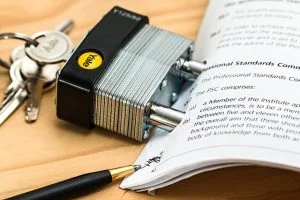Fraudulent conveyance is a civil (not a criminal) matter wherein assets are transferred with the intent to hinder or delay creditors. Whereas it is ideal put an asset protection plan into place before trouble arises, in reality, many people do not realize the need until it is too late. So, prepare for a lawsuit before it strikes if you can. However, if it is too late and you have not yet done so, don’t worry. There are ways to protect yourself after the fact.
Put Up a Fight
Fraudulent conveyance is also known as fraudulent transfer. Some people think that you find yourself dealing with a creditor, it’s over. They think that there is not a whole lot they can do to move assets protect them. Not true. If you can put up a fight, why not do it? Besides, once enough time has passed, creditor cannot even challenge the transfer. This is called the statute of limitations on fraudulent conveyance.

Strategies
There are a few strategies that you can employ late in the game. For example, offshore asset protection trusts take the assets outside of the local court’s jurisdiction. So even if your opponent jumps up and down and screams “fraudulent transfer,” your offshore trustee can lace his hands behind his head, lean back in his chair and look out at the palm trees wafting in the sea breeze. The reason is that your local courts do not have jurisdiction in his country.
The judge may tell you to ask the trustee to send trust funds to your legal opponent. If you make that request against your will, your trustee will support your true desires. They will invoke the duress clause and refuse to comply. You have done your part in doing what the judge has ordered. You asked the trustee to bring back the funds. The key is to make sure your trust is properly established. If it is, a judge would be hard-pressed to find you in contempt. That is because you are not refusing to comply. You simply do not have the ability to act firsthand.

Huge Barrier for Your Opponent
This leaves your opponent a very expensive and time-consuming option: To file a lawsuit offshore. Even if he does, he will find himself in an obstacle course. One that is built intentionally to make it unlikely for him to win. A pride of lions most often eat the weakest members of the herd. So, why let yourself be easy prey? Why not be the one that puts up the biggest fight?

Fraudulent Conveyance Vs. Preparation
This is not to say that you should engage in fraudulent conveyance.[1] It is best that you do not. It is much better for you prepare for the near inevitable. That is, set up an asset protection plan before you need it. So, this seemingly obstinate dialogue intends to give an editorial angle on the subject. It is not encouraging you to participate in this practice. It is simply saying that those who have the philosophy “I’m not going down without a fight,” put the odds in their favor over those who easily cave in.

Your Legal Reputation
Lawsuits leave a public trail. If your legal reputation says, “When a litigant says ‘jump’ you ask ‘how high?’” you might as well put a giant “sue me” sign on your back. If you are the type that fights to the death, your opponent will see that. You want them to see by your past actions that if they come after you they will have a huge fight on their hands. That will make them think twice about engaging you in a battle.
You can employ legal and ethical asset protection before a confrontation with a plaintiff’s lawyer or creditor. So if you can, why not do it right and prepare yourself before you need it?



